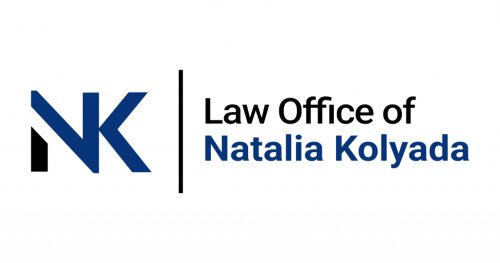Best Collaborative Law Lawyers in Georgia
Share your needs with us, get contacted by law firms.
Free. Takes 2 min.
Free Guide to Hiring a Family Lawyer
Or refine your search by selecting a city:
List of the best lawyers in Georgia, United States
About Collaborative Law in Georgia, United States
Collaborative Law in Georgia is an alternative dispute resolution process especially popular in family law cases, such as divorce, child custody, and property division. It is designed to help parties resolve their differences outside of the traditional court system by working collaboratively with each other, their attorneys, and other trained professionals. The collaborative process emphasizes negotiation, communication, transparency, and the mutual goal of reaching an agreement. Instead of an adversarial approach, all parties commit to problem-solving in a cooperative environment to minimize conflict and reduce the emotional and financial costs often associated with litigation.
Why You May Need a Lawyer
There are several situations where you may need a lawyer who specializes in Collaborative Law in Georgia:
- You are seeking a divorce but want to avoid a lengthy, contentious court battle.
- You and your spouse want to create a co-parenting plan for your children and prefer a cooperative approach.
- There are significant assets or debts to be divided, and you wish to resolve matters privately and efficiently.
- You want the process to be less stressful and more amicable for everyone involved, especially children.
- There are sensitive issues, such as business interests or family trusts, that are best handled confidentially.
- You wish to maintain a positive relationship with your spouse, perhaps for the benefit of shared children or community ties.
A Collaborative Law attorney can guide you through the process, protect your interests, and ensure that all agreements are legally sound and enforceable in Georgia.
Local Laws Overview
Georgia has recognized the value of Collaborative Law and has established laws and professional guidelines to govern this process. The Uniform Collaborative Law Act (UCLA), which Georgia has adopted, lays out the basic structure and rules for collaborative proceedings. Some key aspects of Collaborative Law in Georgia include:
- Both parties must sign a participation agreement, committing to resolve their issues without going to court.
- If either party decides to leave the collaborative process and pursue litigation, both collaborative attorneys are disqualified from continuing representation in court.
- The process is confidential, and statements made during collaborative sessions generally cannot be used later in court if the process fails.
- The collaborative team may also include neutral professionals, such as financial experts, mental health coaches, or child specialists.
- All parties agree to make full and honest disclosures of all relevant information and documents.
These legal guidelines are in place to foster trust, transparency, and efficient resolutions tailored to the unique needs of each family.
Frequently Asked Questions
What is Collaborative Law?
Collaborative Law is a legal process where parties resolve disputes, especially family law matters, outside of court with the guidance of specially trained attorneys and sometimes other professionals. The aim is to reach a mutually acceptable agreement through cooperation and open communication.
How does Collaborative Law differ from traditional divorce?
In Collaborative Law, both spouses and their attorneys pledge not to go to court. The process is voluntary, focuses on negotiation and problem-solving, and often involves other neutral experts, resulting in a less adversarial and more private experience compared to traditional litigation.
Is the Collaborative Law process confidential?
Yes, Collaborative Law sessions are confidential. Communications made during the process are generally protected and cannot be used as evidence if the case goes to court, encouraging open and honest discussions.
What happens if the collaborative process does not work?
If either party leaves the Collaborative process, both attorneys must withdraw, and the parties must hire new counsel if they decide to take their case to court.
Can Collaborative Law handle all issues in a family law matter?
Yes, most family-related issues such as child custody, support, property division, and even post-divorce modifications can be addressed through the Collaborative process.
Who should consider using Collaborative Law?
Anyone seeking an amicable resolution to family law disputes, especially those who value privacy, want to minimize conflict, and hope to preserve positive relationships, should consider the Collaborative approach.
How long does a Collaborative Law case usually take?
The timeline varies based on the complexity of the issues, but Collaborative cases are generally resolved more quickly than traditional court cases because the pace is controlled by the parties, not the court’s calendar.
Can Collaborative Law be used if there is a history of domestic violence?
Collaborative Law may not be appropriate where there is a significant power imbalance or history of abuse. Each case is unique, so consult a Collaborative Law attorney to assess suitability.
Are the agreements reached in Collaborative Law legally binding?
Yes, once an agreement is reached, it is drafted into a formal contract and submitted to the court for approval, becoming legally enforceable.
How do I find a Collaborative Law attorney in Georgia?
You can find Collaborative Law attorneys through bar association directories, referrals from other professionals, or organizations dedicated to Collaborative Practice in Georgia.
Additional Resources
If you are considering Collaborative Law in Georgia, the following resources may be helpful:
- State Bar of Georgia Family Law Section - Offers directories and information about family law practitioners, including those trained in Collaborative Law.
- Georgia Office of Dispute Resolution - Provides education and resources about alternative dispute resolution options across Georgia.
- Local court self-help centers - Many courts in Georgia have resources and staff available to answer questions about family law processes.
- International Academy of Collaborative Professionals (IACP) - Provides information about Collaborative Law and a directory of trained professionals.
- Collaborative Law Centers and local non-profit organizations - Many communities have dedicated centers or agencies promoting Collaborative Practice and offering workshops or consultations.
Next Steps
If you believe Collaborative Law may be right for your situation, consider taking the following steps:
- Conduct initial research to understand your options and determine if collaborative resolution matches your needs and goals.
- Consult with a qualified Georgia attorney trained in Collaborative Law to review your specific circumstances and explain the process.
- Discuss the Collaborative option with the other party to gauge their willingness to participate in an out-of-court, cooperative process.
- Prepare documentation, financial records, and any relevant information to facilitate open disclosure during the process.
- Work with your attorney and any neutral professionals to develop a plan that addresses all legal and practical issues.
Choosing to resolve disputes through Collaborative Law can lead to more amicable, efficient, and lasting outcomes. If you are ready to proceed, seek professional legal advice to get started and ensure your rights and interests are fully protected throughout the process.
Lawzana helps you find the best lawyers and law firms in Georgia through a curated and pre-screened list of qualified legal professionals. Our platform offers rankings and detailed profiles of attorneys and law firms, allowing you to compare based on practice areas, including Collaborative Law, experience, and client feedback.
Each profile includes a description of the firm's areas of practice, client reviews, team members and partners, year of establishment, spoken languages, office locations, contact information, social media presence, and any published articles or resources. Most firms on our platform speak English and are experienced in both local and international legal matters.
Get a quote from top-rated law firms in Georgia, United States — quickly, securely, and without unnecessary hassle.
Disclaimer:
The information provided on this page is for general informational purposes only and does not constitute legal advice. While we strive to ensure the accuracy and relevance of the content, legal information may change over time, and interpretations of the law can vary. You should always consult with a qualified legal professional for advice specific to your situation.
We disclaim all liability for actions taken or not taken based on the content of this page. If you believe any information is incorrect or outdated, please contact us, and we will review and update it where appropriate.
Browse collaborative law law firms by city in Georgia
Refine your search by selecting a city.













